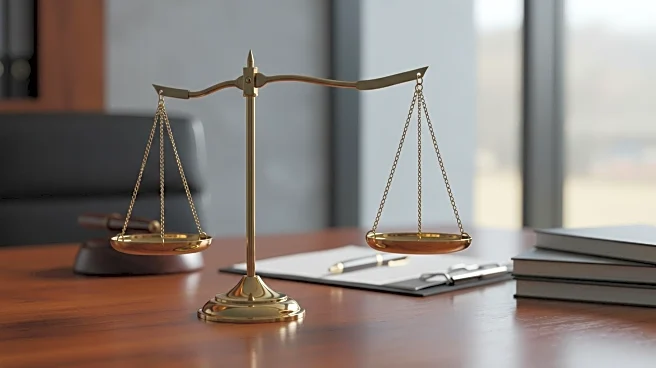What's Happening?
Connor Stalions' legal team has responded to NCAA sanctions imposed on him, asserting that the investigation was biased and flawed. The NCAA had sanctioned Stalions, along with Michigan's Jim Harbaugh and Sherrone Moore, in connection with a sign-stealing probe. Stalions' lawyers argue that the NCAA's investigation was rigged and based on outdated rules that member institutions have sought to eliminate. They claim the NCAA leaked information in violation of its own rules and relied on a confidential source that remains undisclosed. Stalions has chosen to publicly challenge the NCAA's actions through a documentary titled 'Sign Stealer,' aiming to expose what he perceives as the NCAA's fraudulent practices.
Why It's Important?
The challenge to the NCAA's sanctions by Connor Stalions' legal team highlights ongoing tensions between collegiate sports institutions and regulatory bodies. If Stalions' claims of a flawed investigation gain traction, it could lead to increased scrutiny of NCAA practices and potentially prompt reforms in how investigations are conducted. This situation also underscores the broader debate over the relevance and fairness of certain NCAA rules, which some argue are outdated and do not serve the needs of modern student-athletes. The outcome of this dispute could have significant implications for NCAA governance and the future of collegiate sports regulations.
What's Next?
Michigan is expected to appeal the NCAA's ruling, which could lead to further legal proceedings and public debate over the fairness of the sanctions. The NCAA may face pressure to disclose the identity of the confidential source and provide more transparency in its investigative processes. Stakeholders in collegiate sports, including other universities and athletes, will likely monitor the situation closely, as the resolution could impact future NCAA investigations and the regulatory environment in college athletics.
Beyond the Headlines
The case raises ethical questions about the balance between maintaining competitive integrity in sports and ensuring fair treatment of individuals involved in investigations. It also highlights the potential for media and public opinion to influence the outcomes of regulatory disputes, as Stalions' documentary seeks to sway public perception against the NCAA. Long-term, this situation could contribute to a shift in how collegiate sports are governed, with increased calls for transparency and accountability in regulatory practices.









